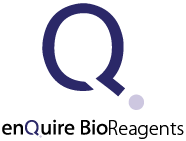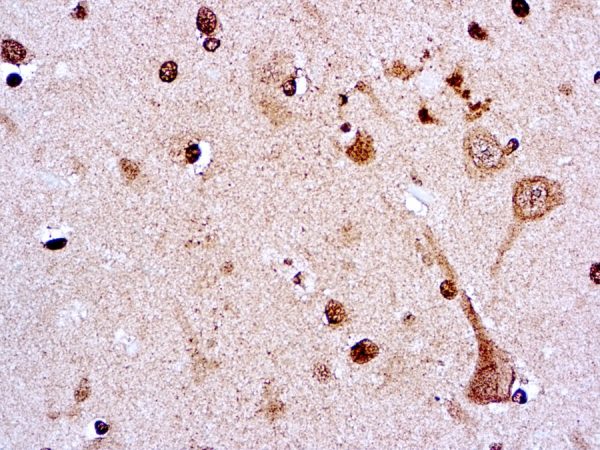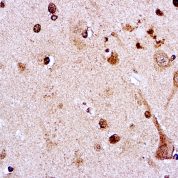Antibody (Suitable for clinical applications)
Sample Type: FFPE Patient Samples.
Tested Applications: IHC. Approved for In Vitro Diagnostic Procedures on FFPE tissues. For tissue collection recommendations, please see datasheet sent with product.
Application Notes
| Specification | Recommendation |
|---|---|
| Recommended Dilution (Conc) | 1:10-1:20 |
| Pretreatment | Citrate Buffer pH 6.0 |
| Incubation Parameters | 30 min at Room Temperature |
Prior to use, inspect vial for the presence of any precipitate or other unusual physical properties. These can indicate that the antibody has degraded and is no longer suitable for patient samples. Please run positive and negative controls simultaneously with all patient samples to account and control for errors in laboratory procedure. Use of methods or materials not recommended by enQuire Bio including change to dilution range and detection system should be routinely validated by the user.
Clonality: Monoclonal
Anti-CA 15-3 Antibody Clone: DBMM1
Host and Isotype: Mouse IgG1, kappa
Recommended Positive Control Sample: Breast carcinoma
Cellular Localization of Antibody DBMM1 Staining: Cytoplasmic, cell membrane
Buffer and Stabilizer: PBS with 1% BSA and 0.05% NaN3
Antibody Concentration: Lot specific. Plese contact tech support for data.
Immunogen: Human breast cancer cell line ZR-75-1
Storage Conditions: This antibody should be stored refrigerated (2-8°C). This product should not be used past the expiration date printed on the vial.
CA 15-3 Information for Pathologists
Summary:
Also called CD227, MUC1 and episialin. Large cell surface mucin glycoprotein expressed by most glandular and ductal epithelial cells and some hematopoietic cells. Pathophysiology Normally acts as barrier to apical surface of epithelial cells, playing a protective and regulatory role. Inhibits formation of E-cadherin / beta catenin complex.Notable Clinical Features:
Highly expressed by most adenocarcinomas, associated with poor prognosis (Hum Pathol 1995;26:432). In breast cancer, aberrant cytoplasmic and membranous localization (associated with micropapillary subtype) is associated with poor outcome (Mod Pathol 2005;18:1295). Shed into the bloodstream of adenocarcinoma patients, used in commercial serum tumor marker assays (CA15-3). Uses by pathologists Common epithelial marker.Common Uses By Pathologists:
Common epithelial marker. Marker of meningioma. Marker of Paget disease (Am J Surg Pathol 2001;25:1469). In breast and bladder micropapillary carcinoma, MUC1 stains stroma-facing surface of cell clusters (basal), which accentuates outlines of micropapillary units to form a distinct band on this surface. Distinguish systemic anaplastic large cell lymphoma (MUC1+) from cutaneous anaplastic large cell lymphoma (usually MUC1-, Am J Surg Pathol 2008;32:1421).Limitations and Warranty
This antibody is manufactured in accordance with clinical good manufacturing practices in an ISO13485:2016 certified production facility. It is intended for multiple uses including in vitro diagnostic use and research use only applications. Please see vial label for expiration date. We strive to always deliver antibodies with a shelf life of at least two years.






There are no reviews yet.